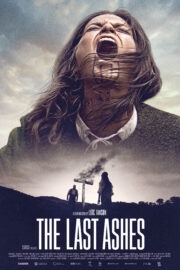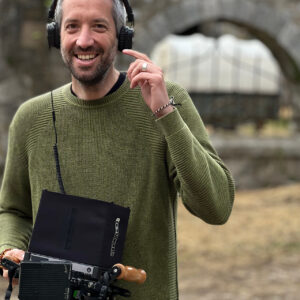The Last Ashes
A female-led modern Western set in Luxembourg in 1854. Helene returns to her home parish, which is suffering under the tyranny of the patriarchal Graff family, and has just one desire: deadly revenge!
Cast
- Helene/Oona
- Sophie Mousel
- Jon
- Timo Wagner
- Graff
- Jules Werner
- Pier
- Luc Schiltz
- Marie
- Marie Jung
- Luc
- Philippe Thelen
- Sidonie
- Jeanne Werner
- Priest Meyers
- Jean-Paul Maes
- Kremer
- Denis Jousselin
- Soldier Tom
- Max Gindorff
- Chief Soldier Henri
- Tommy Schlesser
- Helene child
- Giusi Carenza
- Jon child
- Jamie Baillie
- Marie child
- Lou Beltramini

The Last Ashes
Loïc Tanson
- Fiction
- Production Country / Year
- Luxembourg, Belgium 2023
- Language
- lb., oj. OF m. engl. UT
- Format
- DCP, Both, 125min
2.39:1, Discrete 7.1
- Original Title
- Läif a Séil
Director & Crew

Loïc Tanson
Born in 1981 in Luxembourg. Studied at the European Institute for Cinema and Audiovisual Media in Nancy and participated in a Directing workshop at the New York Film Academy in Los Angeles. Worked as a journalist, film critic and programming director. Active as a director and writer.
Filmography
| 2011 | Laaf | Kurzfilm | |
| 2013 | Le faux depart | Kurzfilm | |
| 2016 | Eldorado | Dokumentarfilm | |
| 2017 | Sur le fil | Kurzfilm | |
| 2015 | Routwäissgro | Dokumentarserie | |
| 2022 | Läif a Séil / The last ashes | Spielfilm | 2023 |
“The Western genre, that essentially American genre, was my introduction to the language of cinema. Later, I developed a passion for Italian-American Westerns, and it was this that pushed me to consider making films. It was therefore logical that writing and directing a European Western, more precisely a Luxembourgish Western, would be my first venture into the world of feature films.
Introducing a dynamic female character who carries a film soaked in a fundamentally macho genre was a priority, as was appropriating the mythic genre of the West and transposing it to the Luxembourg context. This small country in the middle of Europe, nowadays known worldwide as a financial center, was founded as a state as late as 1839 and therefore has a relatively young history. Inspired by this late quest for independence, THE LAST ASHES is rooted in a population closed in on itself, its traditions, and its piety—traces of which still exist in current generations.
However, I chose to anchor the story of THE LAST ASHES in the frame of a fairy tale, like those by Charles Perrault whose desire in the 17th century was to make the fairy tale as popular as possible and for it to gain recognition as a literary genre. Perrault appropriated popular folk stories from the oral tradition and turned them into highly moral fairy tales. These elements of the fairy tale find their roots in mythology specific to the genre of the Western.”
Loïc Tanson
- Make-up
- Evie Hamels
- Music Composer
- Thorunn Egilsdottir
- Mike Koster
- Producer
- Claude Waringo
- Claude Waringo
- Production Designer
- Christina Schaffer
- Writer
- Loïc Tanson
- Frédéric Zeimet
- Sound Designer
- Jeroen Truijens
- Sound
- Céline Bodson
- Editor
- Loïc Tanson
- Costume Designer
- Magdalena Labuz
- Director of Photography
- Nikos Welter